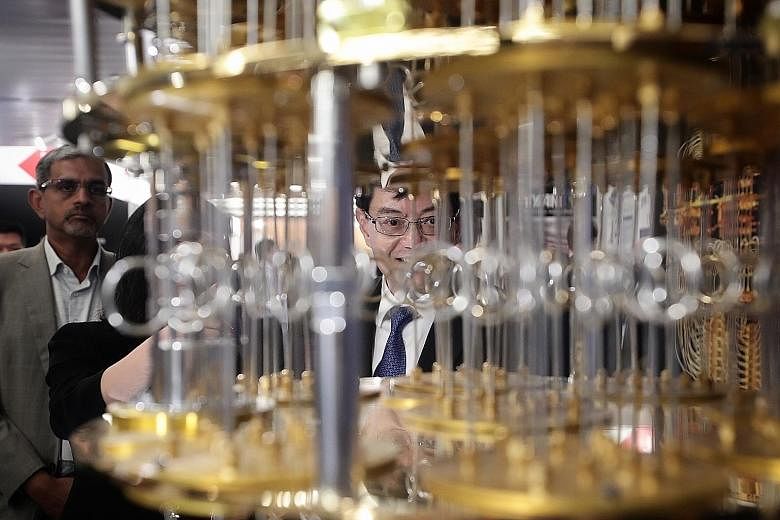Regular computers would take 30 years to scan the genetic material of over 200 gastric cancer tumours.
But supercomputers using artificial intelligence (AI) can get the job done in just a few months, a significant development in the fight against the disease.
Finance Minister Heng Swee Keat yesterday cited this as one example of the role supercomputers play as he announced a $200 million boost to further develop the field of supercomputing.
It is one of the areas that Singapore is focused on to achieve its Smart Nation goals.
The funds will come from the $19 billion the Government has set aside to develop new technologies under the Research, Innovation and Enterprise (RIE) 2020 plan, said Mr Heng, who is also chairman of the National Research Foundation board.
Speaking at the launch of the Supercomputing Asia 2019 conference, Mr Heng said: "To support the next phase of this development, the National Research Foundation will allocate $200 million under the RIE 2020 plan to upgrade both our supercomputing capability and network speed and quality for access by all institutions of higher learning and research institutions."
Supercomputers perform at the current highest operational rate for computers. They enable problem-solving and data analysis that would be impossible, too time-consuming or costly for regular computers.
This allows them to carry out high-level processes and effectively use technologies such as AI.
Supercomputers can be used in climate research, molecular modelling, physical simulations and quantum mechanics, which is the field of science concerning the smallest scales of energy levels of atoms and subatomic particles.
Mr Heng said that supercomputers are an important tool in helping Singapore to continue its economic growth, and the field's potential for innovation makes investment in it critical.
Referencing petaflops, a widely recognised unit to measure high-level computational ability, Mr Heng elaborated on how the $200 million investment will significantly increase the speed of supercomputers here and help Singapore stay connected internationally.
"This will provide 15 to 20 petaflops of high-quality, high-end computing performance.
"This is equivalent to having a million laptops that are equipped with extensive high-performance network connectivity to our global partners," he added.
Mr Heng said Singapore needs to continue to allocate time, money and effort to the field of supercomputing in order to realise its Smart Nation goals, upgrade its economy and remain competitive with other countries that are also developing capabilities in this field.
He said: "As we embark on our journey as a Smart Nation and digitalise our economy, we must upgrade our supercomputing resources to keep up with our partners globally and to solve complex national challenges more quickly and effectively."
The annual conference, jointly organised by the National Supercomputing Centre Singapore (NSCC) and Japanese and Australian supercomputing associations, sees experts from around the world giving lectures and holding discussions aimed at promoting the field of supercomputing in Asia.
Big names in the tech world such as AMD, Amazon Web Services and Alibaba are taking part in discussions about the latest advances and future trends for high-performance computing (HPC). The conference, being held at Suntec Singapore Convention and Exhibition Centre, runs until tomorrow.
A competition, which will involve teams from tertiary institutions in the region, was launched at the event yesterday.
The competition, which will run until July 26, will see student teams submitting solutions that they will program and develop to address challenges around AI development and testing, and high-performance computing workloads.
It is organised by the NSCC and the Asia-Pacific HPC-AI Advisory Council - an organisation dedicated to high-performance computing and artificial intelligence research, outreach and education.


